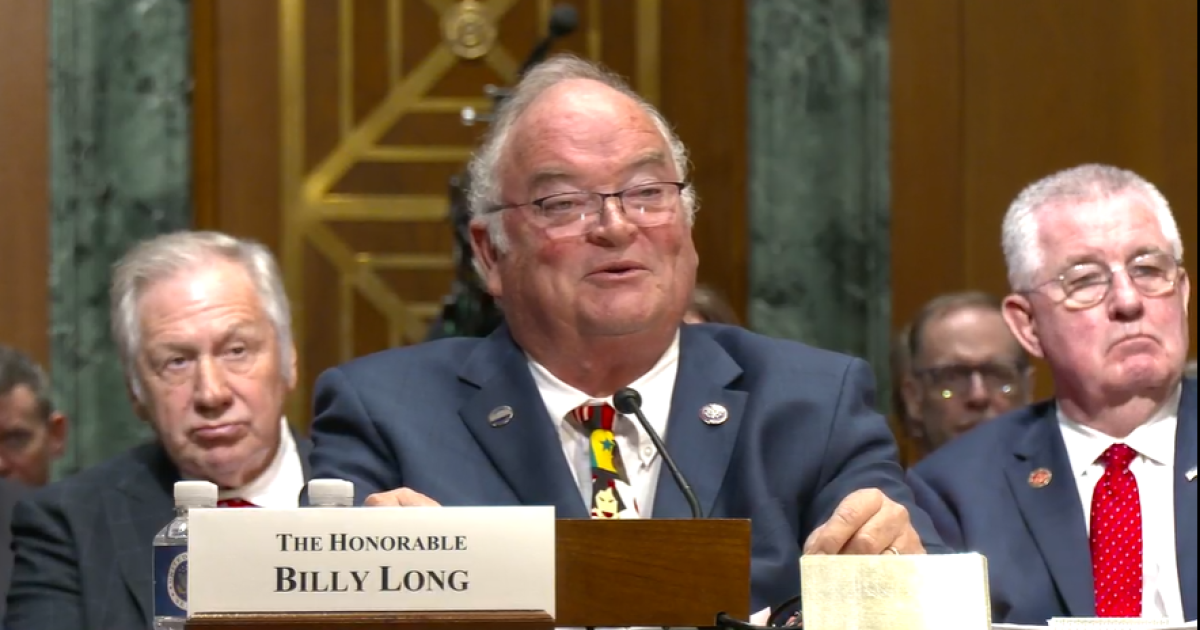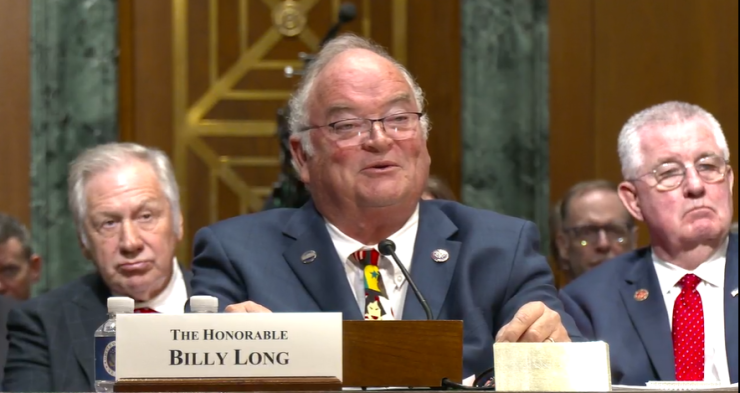Bank job; the magic is gone; not a beautiful day in the Neighborhood; and other highlights of recent tax cases.
Washington, D.C.: CPA Timothy Trifilo has been sentenced to 20 months in prison for making a false statement on a mortgage loan application and for not filing an income tax return.
Trifilo worked in compliance for several large accounting and finance firms and recently was managing director at a tax firm where he specialized in transaction structuring and advisory service, tax compliance and tax due diligence.
For a decade, he did not file federal income tax returns nor pay taxes owed despite earning more than $7.7 million during that time. He caused a tax loss to the IRS of more than $2 million.
In February 2023, Trifilo sought to obtain a $1.36 million bank-financed loan to purchase a home in D.C. and was working with a mortgage company. After the company told him that the bank would not approve the loan without copies of his filed returns, Trifilo provided fabricated documents to make it appear as if he had filed federal returns for 2020 and 2021. On these returns and other documents, Trifilo listed a former colleague as the individual who prepared the returns and uploaded them for filing with the IRS. This individual did not prepare the returns, has never prepared returns for Trifilo and did not authorize Trifilo to use his name on the returns and other documents.
The bank approved the loan and Trifilo purchased the home.
Trifilo, who previously pleaded guilty, was also ordered to serve two years of supervised release and pay $2,057,256.40 in restitution to the IRS.
New York: Tax preparer Rafael Alvarez, 61, of Cortland Manor, New York, has been sentenced to four years in prison in connection with a decade-long, $145-million tax fraud.
Alvarez, a.k.a. “the Magician,” who previously pleaded guilty, oversaw the filing of tens of thousands of federal individual income tax returns that included false information designed to fraudulently reduce clients’ taxes. From around 2010 to 2020, Alvarez was the CEO, owner and manager of ATAX New York, also d.b.a. ATAX New York-Marble Hill, ATAX Marble Hill, ATAX Marble Hill NY and ATAX Corporation. This high-volume prep company in the Bronx, New York, prepared some 90,000 federal income tax returns for clients during this period.
Alvarez both prepared returns for clients and recruited, supervised and directed other personnel who in turn prepared returns. He oversaw what authorities called “a sweeping fraudulent scheme” where he and his employees submitted false information on clients’ returns. This information included, among other things, bogus itemized tax deductions, made-up capital losses, phony business expenses and fraudulent tax credits.
Alvarez recruited to ATAX and personally trained “impressionable, easily intimidated” workers. When some employees questioned Alvarez about his fraudulent tax prep, he threatened these employees about reporting his scheme.
He deprived the IRS of $145 million in tax revenue.
He was also sentenced to three years of supervised release and ordered to pay the IRS $145 million in restitution and forfeit more than $11.84 million.
Philadelphia: Tax preparer James J. Sirleaf, 65, of Darby, Pennsylvania, has pleaded guilty to a multiyear scheme to help clients file false income tax returns to fraudulently increase their refunds, as well as to filing false personal income tax returns for himself.
Sirleaf, who previously pleaded guilty, was the sole owner and operator of Metro Financial Services; he prepared false and fraudulent 1040s for clients for at least tax years 2016 through 2019. On the returns he included false deductions, business expenses and dependent information.
He also filed false returns for himself for tax years 2017 through 2019, failing to fully report his income.
Sirleaf caused a tax loss to the IRS of $219,622.
Sentencing is Sept. 3.
Summerfield, North Carolina: William Lamar Rhew III has pleaded guilty to wire fraud, money laundering, securities fraud, tax evasion and failure to file returns in connection with a $20 million Ponzi scheme.
From November 2017 to December 2023, Rhew defrauded at least 117 investors of at least $24 million. He induced victims to invest with his company, Chadley Capital, which would allegedly buy accounts receivable at a discount, sell them for a profit and provide consistently high rates of return. Rhew touted the company’s increasing deal flow and underwriting standards and claimed $300 million in transactions in 2023, consistent returns exceeding 20% per year and nearly 74% total growth over 24 months.
All Rhew’s representations were false. Instead of investing victims’ funds, Rhew used the money on personal expenses, including the purchases of a boat, a beach house and luxury cars, and to make “interest” and “withdrawal” payments to other victim-investors.
For 2018 through 2022, Rhew willfully failed to report nearly $9 million in income to the IRS.
He has agreed to pay almost $14.9 in restitution to the victims and $3,056,936 to the IRS.
Sentencing is Aug. 22. Rhew faces up to 20 years in prison, supervised release of up to three years and monetary penalties.
Miami: In related cases, three tax preparers have pleaded guilty to tax crimes connected to a scheme to prepare false returns.
Franklin Carter Jr., of Sanford, Florida, pleaded guilty to conspiring to defraud the U.S. and to not filing returns. Jonathan Carrillo, of St. Cloud, Florida, pleaded guilty to conspiring to defraud the U.S. and assisting in the preparation of false returns.
Diandre Mentor has pleaded guilty to conspiring to defraud the United States by filing false returns for clients.
From 2016 to 2020, Carter and Carrillo owned and operated Neighborhood Advance Tax, a tax prep business with a dozen offices throughout Florida. Mentor worked there between January 2017 and 2019. The conspirators inflated client refunds by fabricated deductions and held periodic training to teach Neighborhood employees how to prepare fraudulent returns.
In 2020, Mentor and his co-conspirators also started Smart Tax & Finance, which expanded to 12 franchise locations throughout South and Central Florida. The next year, Carter, Carrillo and the co-conspirators started Taxmates, which operated out of the same offices that Neighborhood had used. Both firms prepared false returns for clients; many of those returns included false deductions.
The three also continued to teach franchise owners and employees how to prepare false returns for clients. In addition, Carter did not file personal tax returns for 2019 through 2021.
Carter and Carrillo caused a tax loss to the IRS exceeding $12 million. Mentor caused a tax loss to the IRS totaling $3,090,077.
Several co-conspirators have also pleaded guilty, including Abryle de la Cruz, Emmanuel Almonor, Adon Hemley and Isaiah Hayes.
Carter and Carrillo each face up to five years in prison for the conspiracy charge. Carter faces up to a year for each failure to file a return charge; Carillo faces a maximum of three years for each charge of assisting in the preparation of a false return; Mentor faces up to five years in prison. All three also face a period of supervised release, restitution and monetary penalties.


 Blog Post5 days ago
Blog Post5 days ago
 Economics1 week ago
Economics1 week ago
 Economics1 week ago
Economics1 week ago
 Personal Finance1 week ago
Personal Finance1 week ago
 Accounting1 week ago
Accounting1 week ago
 Economics6 days ago
Economics6 days ago
 Personal Finance1 week ago
Personal Finance1 week ago
 Finance1 week ago
Finance1 week ago
















